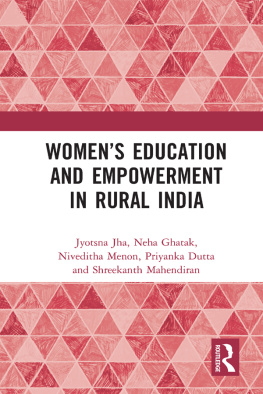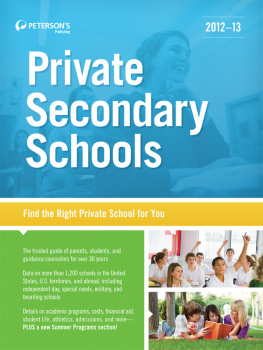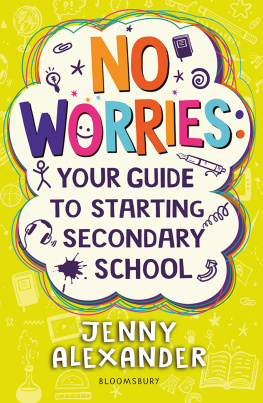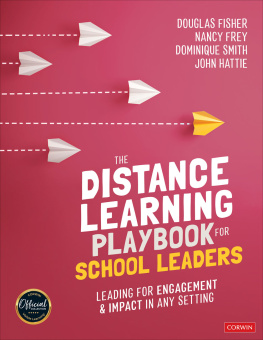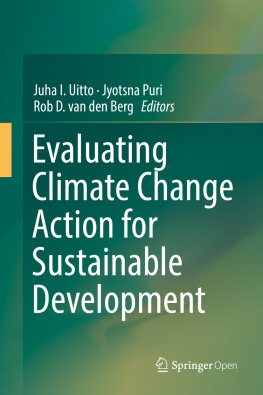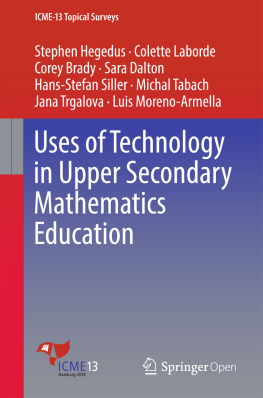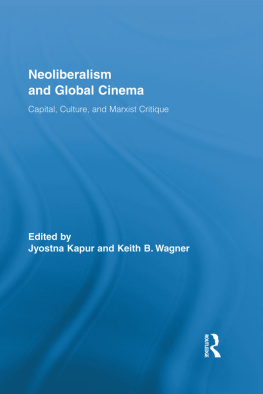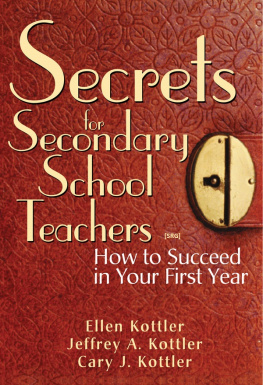
Open and Distance Learning in Secondary School Education in India
This book examines the state of the Open and Distance Learning (ODL)-based secondary education in India. ODL-based education has been a key resource for children in India who can neither cope with nor avail of regular schooling opportunities due to economic, health and disability, or other constraints.
The volume uses large-scale empirical data collected from various Indian states and a sensitive theoretical framework to study the equity, efficiency, and effectiveness of the National Institute of Open Schooling (NIOS) and the State Open School (SOS). Highlighting the roadblocks and barriers in terms of its reach, inclusion, and delivery, particularly to the marginalised, this book explores whether ODL has a potential of being a sustainable and effective option at the secondary and senior secondary level in India. Thus, it seeks to generate policy discourse around delivery mechanisms and effectiveness of ODL in developing countries.
First of its kind, this comprehensive volume will be useful for scholars and researchers of education, education policy, public policy, and political studies.
Jyotsna Jha presently heads the Centre for Budget and Policy Studies (CBPS), Bangalore, India. CBPS is an independent non-profit, non-governmental organisation that focuses on research in gender, education, social and economic policies, budgeting, decentralization, and governance issues.
Neha Ghatak is a research advisor at the Centre for Budget and Policy Studies, Bangalore, India.
Puja Minni is a research advisor at the Centre for Budget and Policy Studies, Bangalore, India.
Shobhita Rajagopal is Associate Professor at the Institute of Development Studies, Jaipur, Rajasthan, India.
Shreekanth Mahendiran is a research advisor at the Centre for Budget and Policy Studies, Bangalore, India.
Open and Distance Learning in Secondary School Education in India
Potentials and Limitations
Jyotsna Jha, Neha Ghatak, Puja Minni, Shobhita Rajagopal and Shreekanth Mahendiran
First published 2020
by Routledge
2 Park Square, Milton Park, Abingdon, Oxon OX14 4RN
and by Routledge
52 Vanderbilt Avenue, New York, NY 10017
Routledge is an imprint of the Taylor & Francis Group, an informa business
2020 Jyotsna Jha, Neha Ghatak, Puja Minni, Shobhita Rajagopal and Shreekanth Mahendiran
The right of Jyotsna Jha, Neha Ghatak, Puja Minni, Shobhita Rajagopal and Shreekanth Mahendiran to be identified as authors of this work has been asserted by them in accordance with sections 77 and 78 of the Copyright, Designs and Patents Act 1988.
All rights reserved. No part of this book may be reprinted or reproduced or utilised in any form or by any electronic, mechanical, or other means, now known or hereafter invented, including photocopying and recording, or in any information storage or retrieval system, without permission in writing from the publishers.
Trademark notice: Product or corporate names may be trademarks or registered trademarks, and are used only for identification and explanation without intent to infringe.
British Library Cataloguing-in-Publication Data
A catalogue record for this book is available from the British Library
Library of Congress Cataloging-in-Publication Data
A catalog record for this book has been requested
ISBN: 978-0-367-20485-3 (hbk)
ISBN: 978-0-367-82398-6 (ebk)
Typeset in Sabon
by Apex CoVantage, LLC
Contents
Jyotsna Jha presently heads the Centre for Budget and Policy Studies (CBPS), Bangalore, India. Trained as an economist, Dr Jha has significant experience of working on development related issues. Prior to joining CBPS she worked as an adviser to Social Transformation Programmes Division at Commonwealth Secretariat in London, which allowed her to undertake research and policy advocacy in a large number of countries. She has served as a member of the Global Advisory Committee for UN Girls Education Initiative (UNGEI) for four years. She has also been a member of several national committees and Task Forces in India. She has led a number of research initiatives, has six co-authored books, and several chapters and papers to her credit. She has written extensively on the issue of equity in education, particularly on gender and education.
Neha Ghatak has a Masters in sociology from Delhi School of Economics, India. She is a research advisor at the Centre for Budget and Policy Studies, Bangalore, India where her engagement has primarily been with gender studies and the education sector. She has worked on several projects related to womens empowerment, agency, and related issues and has also worked extensively on the Right to Education, 2009. A sociologist by training, Neha has been involved in studies that examine the relationship between gender, empowerment and education, elected women representatives, and community engagement in schools.
Puja Minni holds two Masters degrees: one in economics from Bangalore University, India and another in public policy and administration from the University of Massachusetts Amherst, USA. She has worked as a researcher in the field of education since 2012 and has a number of publications to her credit. Her research interests include school education, use of technology in education, and teacher management. Currently, she is working as a research advisor at the Centre for Budget and Policy Studies, Bangalore, India.
Shobhita Rajagopal is Associate Professor at the Institute of Development Studies, Jaipur, Rajasthan, India. She has over three decades of experience in social development and policy research, gender training, and policy advocacy. Her research interests include gender and education, reproductive health and rights, gender-based violence, and gender and WASH. She is also actively involved in the womens movement, NGO and civil society movements in Rajasthan and India. Her recent work on gender and WASH explores interconnections between education and reproductive health rights issues and understands the menstrual health value chain in the context of adolescent girls in rural and urban settings.
Shreekanth Mahendiran is a research advisor at the Centre for Budget and Policy Studies, Bangalore, India. His research primarily focuses on the applied microeconomics and development economics to examine the questions on access, welfare, and impact assessment. He focuses primarily on the areas related to education, gender, empowerment, and health in the context of the developing world.
This book is based on research conducted on Open and Distance Learning (ODL) in India completed over a period of four years. This is a result of the hard work and efforts of many who contributed since the inception, saw through its evolution, and finally helped in completing the report as well as other research outputs. We express our heartfelt gratitude to all of them.
First of all, we acknowledge the contributions of our colleague, Mr. Thyagarajan R., who played a crucial role in fieldwork in Andhra and in the telephonic survey for the tracer study of NIOS graduates. The study has tremendously benefited from collaboration with the Institute of Development Studies (IDS), Rajasthan. Without the active engagement of Mr. Radheyshyam Sharma (Late) in Rajasthan, the research would not have been completed.




